building a CUNY DH Community since 2010
Doug Eyman and Collin Brooke, October 8th 6:30-8:30pm
On 25, Sep 2013 | In Uncategorized | By Amanda Licastro
Please join CUNY DHI and the Graduate Center Composition and Rhetoric Community (GCCRC) for a conversation about the intersection of writing studies and digital humanities with Doug Eyman and Collin Brooke. We are excited to welcome these two innovative scholars to share in an important discussion concerning the future of digital rhetoric. Doug Eyman is a professor of digital rhetoric, technical and scientific communication, and professional writing at George Mason University and the senior editor of Kairos: A Journal of Rhetoric, Technology, and Pedagogy; Collin Brooke is a professor of of Rhetoric and Writing at Syracuse University and is the author of Lingua Fracta: Towards of Rhetoric of New Media (complete bios below).
This event will take place on Tuesday, October 8th from 6:30-8:30pm at the Graduate Center, CUNY in Room C415A.
Doug Eyman 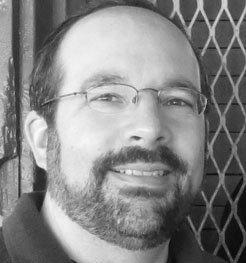
Digital Rhetoric and the Infrastructure of DH
Bio:
Collin Brooke
Too Big to Scale? Culturomics and Crypto-Rhetorics
Since the Google Books Team’s 2010 article in Science and their release of the N-Gram Viewer, the idea of “culturomics” has begun to appear in a variety of academic studies (e.g., Twenge et al.2012, Kesebir & Kesebir 2012, Greenfield 2013). While the resulting claims have garnered attention, both in academic circles and in the popular media, we have spent less time examining the methodological assumptions behind these studies. As a method, culturomics presupposes certain relationships between language and culture; those of us who study rhetoric and digital humanities should be conscious of and prepared to interrogate those assumptions. Drawing on network studies as well as what Hayden White once described as the “tropics of discourse,” this presentation offers both an examination and critique of culturomics as method.

Bio:
May 2: Beth Harris (Khan Academy) “Art History Education Goes Digital: The Problem (& Promise) of the Digital Image”
On 25, Apr 2013 | In Meetings | By Charlie Edwards
Please join us on Thursday May 2, 2013 for our final event of the semester: we are excited to welcome Beth Harris, co-Dean with Steven Zucker of Art and History at the Khan Academy. She and Dr. Zucker are Executive Editors of Smarthistory at Khan Academy, an open educational resource for art history that they co-founded (as smarthistory.org) in 2005.
Details are below – we look forward to seeing you there!
Beth Harris
“Art History Education Goes Digital: The Problem (& Promise) of the Digital Image”
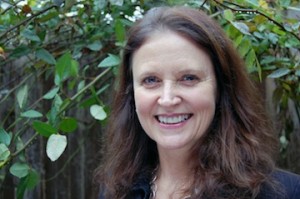 Thursday May 2, 2013, 6:30pm-8:30pm
Thursday May 2, 2013, 6:30pm-8:30pm
CUNY Graduate Center, Room 6421
Co-sponsored by the Master of Arts Program in Liberal Studies, CUNY Graduate Center.
Please register here: http://cunydhi-bethharris.eventbrite.com/
The event is free and open to the public; registration is not mandatory.
Images may be everywhere, but we are doing very little to educate our students about their history and how to engage images critically. This deficiency is compounded by the fact that open access to digital reproductions of cultural heritage objects in the public domain is still many years away. Museums—the institutions that own many of these works of art and often control the best images—remain committed to print publications, and use the web primarily for marketing. At Smarthistory, we have been trying to fill this void, asking how can we best use the web for art history education. Can we scale (with MOOCs in mind) humanities education? Can we make art history more engaging by making it more conversational and experiential while taking advantage of the proliferation of images and video that can contextualize the work of art? How can art history help other disciplines to use images more responsibly?
About Beth Harris:
Dr. Beth Harris is co-Dean with Steven Zucker of Art and History at the Khan Academy. Before joining the Khan Academy, she was the first person to hold the position of Director of Digital Learning at The Museum of Modern Art, where she started MoMA Courses Online. She also co-produced educational videos, websites and apps. Before joining MoMA, Beth was Associate Professor and Director of Distance Learning at the Fashion Institute of Technology where she taught both online and in the classroom. Her scholarly work includes editing and contributing to Famine and Fashion: Needlewomen in the Nineteenth Century (Ashgate, 2005), many book reviews, and “The Slide Library: A Posthumous Assessment in the Service of Our Digital Future,” in Teaching Art History with Technology: Case Studies (2008). She received her Master’s degree from the Courtauld Institute of Art in London, and her Doctorate in Art History from the Graduate Center of the City University of New York.
April 17: Arienne Dwyer (University of Kansas) “Using Languages as Historical Sources”
On 29, Mar 2013 | In Meetings | By Charlie Edwards
Please join us on Wednesday April 17, 2013 for a special presentation by Arienne M. Dwyer, Visiting Professor of Digital Humanities at CUNY Graduate Center and Professor of Linguistic Anthropology and Co-Director, Institute for Digital Research in the Humanities, University of Kansas. Details are below – we look forward to seeing you there!
Arienne Dwyer
“Using Languages as Historical Sources”
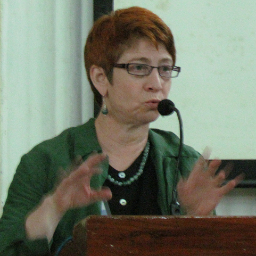 Wednesday April 17, 2013, 6:30pm-8:30pm
Wednesday April 17, 2013, 6:30pm-8:30pm
CUNY Graduate Center, Room 3212
Please register here http://using_languages.eventbrite.com
The event is free and open to the public; registration is not mandatory.
Clues to the history of diaspora communities and contacts with other peoples and ecosystems are embedded like fossils in the bedrock of language. Historians rarely if ever make use of this kind of historical information, while historical linguists only use it to investigate language, not culture. This talk will use ethnohistorical, linguistic and digital humanities techniques to illustrate how spoken narratives and even conversations can help us understand cultural historical patterns.
About Arienne Dwyer:
Professor Dwyer is Visiting Professor of Digital Humanities at CUNY Graduate Center and Professor of Linguistic Anthropology and Co-Director, Institute for Digital Research in the Humanities, University of Kansas. She has conducted more than two decades of in situ collaborative research with communities in Inner and Central Asia and China, and publishes extensively on ethnolinguistic contact and change, language endangerment, and language ideology. Her current research is in corpus linguistics, query interfaces, and language contact. She teaches documentary linguistics, language technologies, and digital humanities.
Thursday April 4: Kari Kraus (University of Maryland) “Experiments in Design Fiction”
On 28, Mar 2013 | In Meetings | By Charlie Edwards
On Thursday April 4, 2013 we are honored to host Kari Kraus (University of Maryland) for a discussion of her work with design fiction. Details are below – we look forward to seeing you there!
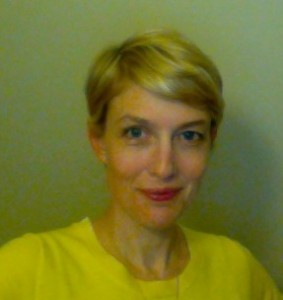 Kari Kraus (University of Maryland)
Kari Kraus (University of Maryland)
“Experiments in Design Fiction”
Thursday April 4, 2013, 6:30pm-8:30pm
CUNY Graduate Center, Room 6421
Please register here: http://design_fiction.eventbrite.com/. The event is free and open to the public, registration is not mandatory.
The last few years have seen a growing interest in future-oriented and speculative design in areas as diverse as media archaeology, human-computer interaction, and alternate reality game design. The application domains are equally diverse, extending to public policy, entertainment, and commercial product development. In this talk I show and discuss some of the low-tech design fiction experiments my collaborators, students, and I have undertaken since 2010, with an emphasis on methodological mashups that cut across the arts & humanities, the social sciences, and the design disciplines. A larger objective of the talk is to think through what an interdisciplinary research and teaching program in long-term thinking that incorporates technology and humanistic design as critical components might look like.
About Kari Kraus:
Kari Kraus is an Assistant Professor in the College of Information Studies and the Department of English at the University of Maryland. Her research and teaching interests focus on digital humanities, game studies and transmedia fiction, and digital preservation. She is currently writing a book under contract to the MIT Press on long-term thinking and design.
Wednesday March 20: Anne Balsamo on “Lessons from the AIDS Memorial Quilt Digital Experience Project”
On 13, Mar 2013 | In Meetings | By Charlie Edwards
Please join us on Wednesday March 20, 2013 when we will be delighted to welcome Anne Balsamo, Dean of the School of Media Studies and Professor of Media Studies at The New School for Public Engagement, who will discuss her work with the AIDS Memorial Quilt Digital Experience Project. Details are below – we look forward to seeing you there!
Anne Balsamo (The New School for Public Engagement)
“The Cultural Work of Interactive Memorials: Lessons from the AIDS Memorial Quilt Digital Experience Project”
 Wednesday March 20, 2013, 6:30pm-8:30pm, CUNY Graduate Center, Room 3212
Wednesday March 20, 2013, 6:30pm-8:30pm, CUNY Graduate Center, Room 3212
Please register here
The event is free and open to the public.
“Epidemics, like wars, mark a generation for life.”
The AIDS Memorial Quilt was created 25 years ago as a work of community activism to protest the appalling lack of attention by the US health agencies to what was then, in 1987, an increase in improbable fatalities among previously healthy gay men in the United States. Its first inception unfolded in October 1987 on the National Mall in Washington DC as part of the March for Gay Rights; it included 1,920 Quilt panels. Now 25 years later, the Quilt encompasses more than 48,000 panels, representing 60 countries and commemorating more than 93,000 names. It is the largest living memorial of its kind in the world.
The Quilt is also an “activist archive” of the late 20th century. The activities that gave rise to the Quilt in 1987 are part of the history of the campaign for gay and lesbian rights in the US. The Quilt literally stitches together a million memories, a million stories, a million lessons about the relationship between individual lives, public culture, and political activism. In its textile form, it is an unwieldy archive. If laid out in its entirety the Quilt would cover more than 1.3 million square feet. It weighs more than 34 tons.
This presentation discusses the creation of an interactive memorial that was designed to augment the viewing of the textile Quilt. I will demonstrate three digital experiences: 1) an open-source mobile web application called AIDS QUILT TOUCH; 2) a tangible tabletop interactive that enables viewers to search the database of Quilt images to find a specific image and to browse the archive of Quilt panel images; and 3) a community sourcing application that engages people in analyzing and archiving information about the Quilt.
This effort is framed by my recent transmedia book project called Designing Culture: The Technological Imagination At Work. In creating the Quilt Digital Experiences I was interested in exploring the cultural work of public interactives, to examine how they are implicated in practices of cultural reproduction—remembering, witnessing, archiving, and educating.
About Anne Balsamo:
In her recent book, Designing Culture: The Technological Imagination at Work (Duke, 2011), Anne Balsamo offers a manifesto for rethinking the role of culture in the process of technological innovation in the 20th century. Based on her experiences as an educator, new media designer, research scientist and entrepreneur, the book offers a series of lessons about the cultivation of the technological imagination and the cultural and ethical implications of emergent technologies.
Dr. Balsamo was recently appointed the Dean of the School of Media Studies at the New School for Public Engagement in New York. Previously she was a full professor at the University of Southern California in the Annenberg School of Communication and the Interactive Media Division of the School of Cinematic Arts. From 2004-2007, she served as the Director of the Institute for Multimedia Literacy at USC where she created one of the first academic programs in multimedia literacy across the curriculum. In 2002, she co-founded Onomy Labs, Inc. a Silicon Valley technology design and fabrication company that builds cultural technologies. From 1999-2002, she was a member of RED (Research on Experimental Documents), a collaborative research-design group at Xerox PARC who created experimental reading devices and new media genres. She served as project manager and new media designer for the development of RED’s interactive museum exhibit, XFR: Experiments in the Future of Reading that toured Science/Technology Museums in the U.S. from 2000-2003. Her earlier book, Technologies of the Gendered Body: Reading Cyborg Women (Duke UP, 1996) investigated the social and cultural implications of emergent bio-technologies.
See more about her work at her site, Designing Culture.
Thursday February 28: Mary Flanagan – Opening Keynote for “Minding the Body”
On 25, Feb 2013 | In Meetings | By Charlie Edwards
Please join us this Thursday February 28, 2013 for a special presentation given by Mary Flanagan, Sherman Fairchild Distinguished Professor in Digital Humanities at Dartmouth College, Director of Tiltfactor Laboratory, and artist.
Her presentation is the opening keynote for “Minding the Body: Dualism and its Discontents,” an interdisciplinary conference hosted by the English Student Association at CUNY Graduate Center. It is also the inaugural event of our Spring 2013 speaker series, kindly sponsored by the GC Digital Initiatives Program (full schedule coming soon).
Mary Flanagan (Dartmouth College)
“Never Mind the Body, Here’s a Gamepad? Considering Embodiment in The Age of Play“
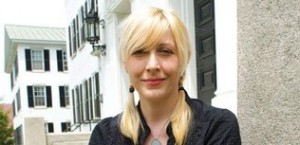 Sponsored by the English Student Association, Doctoral Students’ Council, GC Digital Initiatives, the Center for Humanities, and CUNY Digital Humanities Initiative
Sponsored by the English Student Association, Doctoral Students’ Council, GC Digital Initiatives, the Center for Humanities, and CUNY Digital Humanities Initiative
Thursday, February 28, 2013, 4:00 p.m. – 5:30 p.m.
C204-C205, CUNY Graduate Center
This keynote presentation explores a pervasive onscreen/offscreen split of identification and the body in what we could now call The Age of Play. Citing examples from artists’ work and popular culture, with a focus on games, Flanagan leads the audience on an investigation of current trends that are in diametrical opposition: on the one hand, a hunger for embodied, resonant experience; and on the other, a desire for control for the body, a recurring motif in fields from psychology to public health, manifesting in plastic surgery and digital manipulation of the body.
The presentation is free and open to the public and will also be available as a live streaming video (link will be available shortly before the presentation on Thursday, Feb. 28).
About “Minding the Body”:
“Minding the Body: Dualism and its Discontents” is an interdisciplinary conference hosted by the English Student Association at The CUNY Graduate Center. The conference presents work by 65 presenters that explore the “mind-body problem” via a range of disciplines, including literary studies, philosophy, medicine, psychology, sociology, film and media studies, the visual arts, performance studies, and cognitive science, among others. See the conference website for more details.
About Mary Flanagan:
Mary Flanagan is an innovator focused on how people create and use technology. Her groundbreaking explorations across the arts, humanities, and sciences represent a novel use of methods and tools that bind research with introspective cultural production. As an artist, her collection of works range from game-inspired systems to computer viruses, embodied interfaces to interactive texts. These works are exhibited internationally at venues including the Laboral Art Center, The Whitney Museum of American Art, SIGGRAPH, Beall Center, The Banff Centre, The Moving Image Center, Steirischer Herbst, Ars Electronica, Artist’s Space, The Guggenheim Museum New York, Incheon Digital Arts Festival South Korea, Writing Machine Collective Hong Kong, Maryland Institute College of Art, and venues in Brazil, France, UK, Canada, Taiwan, New Zealand, and Australia.
As a researcher, she focuses on popular culture, digital studies, and computer games to look at issues of representation, behavior, equity, and process. She writes about popular culture and digital media such as computer games, virtual agents, and online spaces in order to understand how they affect and reflect culture. In the field of creative writing, Flanagan is known as a writer of electronic literature, and she is also a poet, with work in The Iowa Review, Barrow Street, Saranac Review, Mudfish, and other books & periodicals. She has written more than twenty critical essays on digital art, cyberculture, and gaming in periodicals such as Art Journal, Wide Angle, Intelligent Agent, Convergence, and Culture Machine, as well as several books. Her books in English include reload: rethinking women + cyberculture (2002), re:SKIN (2007), and Critical Play: Radical Game Design (2009), all with MIT Press. She is also co-author with Matteo Bittanti of Similitudini. Simboli. Simulacri, on the game The Sims (in Italian, Unicopli 2003). She is author, with Helen Nissenbaum, of the forthcoming Values at Play (MIT Press, 2013).
Flanagan founded the Tiltfactor game research laboratory in 2003, where researchers study and make social games, urban games, and software in a rigorous theory/practice environment. She is the Sherman Fairchild Distinguished Professor in Digital Humanities at Dartmouth College.
Website: http://www.maryflanagan.com/(includes extensive images and video). Mary Flanagan also writes on Grand Text Auto. See also Values at Play.
Spring 2013 CUNY Digital Studies/Digital Humanities Seminar Schedule
On 25, Feb 2013 | In Uncategorized | By Charlie Edwards
We are delighted to announce the schedule for our Spring 2013 speaker series, kindly sponsored by the GC Digital Initiatives Program.
All events are free and open to the public, and take place at the CUNY Graduate Center.
Thursday February 28: Mary Flanagan (Dartmouth College)
“Never Mind the Body, Here’s a Gamepad? Considering Embodiment in The Age of Play”
Sponsored by the English Student Association, Doctoral Students’ Council, GC Digital Initiatives, and CUNY Digital Humanities Initiative
Time & Place: 4:00pm-5:30pm, Room C204-205, CUNY Graduate Center
Opening keynote for “Minding the Body: Dualism and its Discontents,” an interdisciplinary conference hosted by the English Student Association at CUNY Graduate Center.
This keynote presentation explores a pervasive onscreen/offscreen split of identification and the body in what we could now call The Age of Play. Citing examples from artists’ work and popular culture, with a focus on games, Flanagan leads the audience on an investigation of current trends that are in diametrical opposition: on the one hand, a hunger for embodied, resonant experience; and on the other, a desire for control for the body, a recurring motif in fields from psychology to public health, manifesting in plastic surgery and digital manipulation of the body.
Mary Flanagan is Sherman Fairchild Distinguished Professor in Digital Humanities at Dartmouth College and Director of Tiltfactor Laboratory. She writes at Grand Text Auto; see also her work on Values at Play.
Wednesday March 20: Anne Balsamo (The New School)
“The Cultural Work of Interactive Memorials: Lessons from the AIDS Memorial Quilt Digital Experience Project”
Time & Place: 6:30pm-8:30pm, CUNY Graduate Center, Room 3212
Anne Balsamo is Dean of the School of Media Studies and Professor of Media Studies at The New School for Public Engagement. She is a national leader in media studies, scholar and media-maker whose work links cultural studies, digital humanities, and interactive media. See more about her work at her site, Designing Culture.
Thursday April 4: Kari Kraus (University of Maryland)
“Experiments in Design Fiction”
Time & Place: 6:30pm-8:30pm, CUNY Graduate Center, Room 6421
Kari Kraus is an assistant professor in the College of Information Studies and the Department of English at the University of Maryland. Her research and teaching interests focus on new media and the digital humanities, textual scholarship and print culture, digital preservation, transmedia storytelling, and game studies.
Wednesday April 10: Rita Raley (University of California, Santa Barbara) This event has been cancelled due to a scheduling conflict.
“Towards a Critical Digital Humanities”
Time & Place: 6:30pm-8:30pm, CUNY Graduate Center, Room 6417
Wednesday April 17: Arienne Dwyer (University of Kansas)
“Using Languages as Historical Sources”
Time & Place: 6:30pm-8:30pm, CUNY Graduate Center, Room 3212
Arienne M. Dwyer is a Professor of Linguistic Anthropology, affiliated with Linguistics and Indigenous Nations Studies, and Co-Director of the Institute for Digital Research in the Humanities at the University of Kansas. Her work focuses on language change; she has conducted 20 years of local research with individuals and communities in Inner and Central Asia and has directed a number of collaborative documentation and archiving projects.
Thursday May 2: Beth Harris (Khan Academy)
“Art History Education Goes Digital: The Problem (& Promise) of the Digital Image”
Time & Place: 6:30pm-8:30pm, CUNY Graduate Center, Room 6421
Beth Harris is dean of Art and History at the Khan Academy. She and Dr. Steven Zucker are Executive Editors of Smarthistory at Khan Academy, an open educational resource for art history that they co-founded (as smarthistory.org) in 2005. Before joining the Khan Academy, she was Director of Digital Learning at The Museum of Modern Art, where she started MoMA Courses Online.
Wednesday November 28: “The Commons and Digital Humanities in Museums”
On 07, Nov 2012 | In Meetings, Video | By Amanda Licastro
Wednesday November 28: “The Commons and Digital Humanities in Museums”
Co-Sponsored by the Ph.D. Program in Art History and The Center for the Humanities
Christina DePaolo (Balboa Park Online Collaborative), Michael Edson (Smithsonian), William Noel (University of Pennsylvania), Neal Stimler (Metropolitan Museum of Art)
This event was held from 6:30pm-8:30pm, at the Elebash Recital Hall at the Graduate Center.
The event was free and open to the public, and was livestreaming at cuny.is/live.
The video of the event can be accessed here: http://www.youtube.com/playlist?list=PLRZyktsPhrexW_VDVk1IFoDhZXy9LOyl2
The Storify can be accessed here: http://storify.com/nealstimler/the-commons-and-digital-humanities-in-museums
And images on flickr can be tagged as #cunydhi and accessed here: http://www.flickr.com/groups/cunydhi/
Inspired by the work of Lawrence Lessig, Lewis Hyde and Bill Ivey among others, museum technologists have been striving to provide greater access to cultural heritage collections in the form of a commons. The currents of DIY, digital humanities, free and remix culture have challenged museums to transform their relationships with scholars and the public toward openness and democratic participation. The GLAM-WIKI movement and Creative Commons licenses have also significantly reshaped museum practices. How can museums build vanguard collaborations and collective resources not only to aid constituents as they use institutional content but to create anew in a digital culture? This panel will explore the diverse implications of the formation of commons by museums.
We look forward to seeing you at this exciting session!
Monday November 26: “Digital Publishing Today”
On 07, Nov 2012 | In Meetings, Video | By Amanda Licastro
Monday November 26: “Digital Publishing Today”
Ashley Dawson (CUNY), Matthew K. Gold (CUNY), Michael Mandiberg (CUNY), Tavia Nyong’o (NYU)
Time & Place: 6:30pm-8:30pm, The Skylight Room (9100)
The video of this event can be accessed here:
[vimeo]http://vimeo.com/55566065[/vimeo]
The Commons and Digital Humanities in Museums from The Center for the Humanities on Vimeo.
What are the radical possibilities of open access publishing? This panel will bring together a number of scholars who have published online to consider how university presses are either facilitating or impeding efforts by academics to explore new forms of cultural production and media activism unleashed by movements such as Occupy Wall Street. Join us to explore these questions and to develop new strategies and models for contemporary academic publication.
We look forward to seeing you at this exciting session!
October 24: Bernard Frischer on “Modeling the Past: New Projects of The Virtual World Heritage Laboratory”
On 08, Oct 2012 | In Meetings, Video | By Charlie Edwards
Please join the CUNY Digital Studies/Digital Humanities Seminar on Wednesday October 24 when we will welcome Bernard Frischer, Director of the Virtual World Heritage Laboratory at University of Virginia, to discuss the VWHL’s work modeling Hadrian’s Villa, a World Heritage Site. The villa is being recreated in 3D by the VWHL and used as a test-bed for experiments in Roman cultural geography.
The video of this even can be accessed here:
Thank you to the CUNY Graduate Center Videography Fellows Program for their work on this video (link here: http://youtu.be/LAk-iSrcnVg)
“Modeling the Past: New Projects of The Virtual World Heritage Laboratory”
Bernard Frischer (University of Virginia)
Co-Sponsored by the M.A. Program in Liberal Studies
Wednesday October 24, 2012, 6:30pm-8:30pm
Room C201/202, CUNY Graduate Center
With generous funding from an anonymous donor and the National Science Foundation, and in close cooperation with the Soprintendenza per i Beni Archeologici del Lazio, an international team has been creating a restoration model of Hadrian’s Villa, a World Heritage Site, and the best-preserved imperial villa in the hinterland of Rome. The model includes terrain, gardens, water features, sculpture, buildings, furnishings, and avatars representing members of the imperial court. The IDIA Lab at Ball State University, a partner in the project, has taken the 3D model and ported it to the game engine Unity3D, so that it is possible to explore the reconstructed villa interactively over the Internet. This talk will present the project, its history, goals, current state, and future prospects.
Bernard Frischer is Director of the Virtual World Heritage Laboratory, University of Virginia. A leading digital humanist, he is the author of several books, including Shifting Paradigms: New Approaches to Horace’s Ars Poetica, and The Sculpted Word: Epicureanism and Philosophical Recruitment, and dozens of articles on virtual heritage, classics, and the survival of the classical world. In 2005, Frischer was given the Pioneer Award of the International Society on Virtual Systems and Multimedia. In 2009, he was the recipient of the Tartessus Lifetime Achievement Prize from the Spanish Society of Virtual Archaeology, and in 2010-11 he held the Senior Prize Fellowship of the Zukunftskolleg at the University of Konstanz.
Many thanks to the Center for the Humanities for sponsoring the CUNY Digital Studies/Digital Humanities Seminar series of events.




 Welcome to the blog of the CUNY DHI, an effort to build momentum and community around Digital Humanities practitioners at CUNY. We hope you'll join us at our upcoming events and that you'll follow this blog to hear about the latest news in the field.
Welcome to the blog of the CUNY DHI, an effort to build momentum and community around Digital Humanities practitioners at CUNY. We hope you'll join us at our upcoming events and that you'll follow this blog to hear about the latest news in the field.



Recent Comments